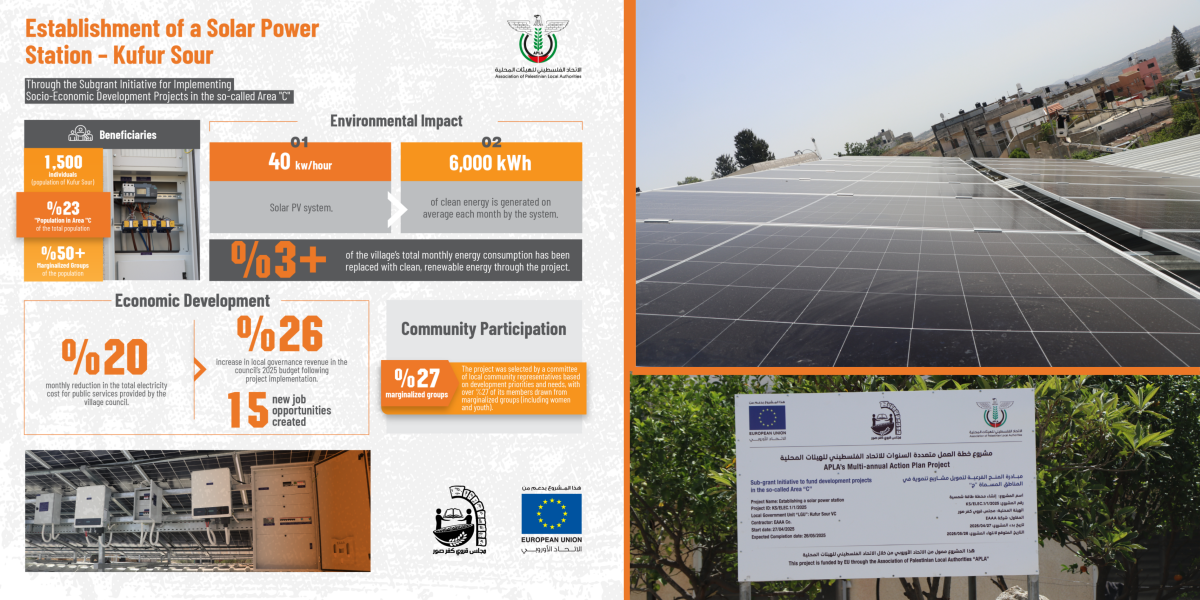Kufur Sour | Establishment of a Solar Power Station
In the village of Kafr Sur, west of Tulkarm, home to about 1,500 residents—including 23% living in Area “C” and more than half belonging to marginalized groups of women, youth, and the elderly—a project to install a solar panel system was implemented as a practical step to ease the burdens of the village and open a path toward sustainability in an environment marked by fragile infrastructure.
With an operational capacity of 40 kW/h, the system produces nearly 6,000 kWh of clean electricity per month, or about 60,000 kWh annually. While this covers only a modest share of the village’s total needs (around 3%), it directly contributed to a 20% reduction in electricity costs for public services. This saving enabled the village council to free up part of its resources, reflecting back on residents through improved services and expanded investment in the village’s infrastructure.
The economic impact is equally clear: 26% increase in council revenues for 2025, along with the creation of 15 new jobs, some of which were allocated to marginalized groups, thus strengthening local economic participation. The value of the project also lies in the way it was carried out—selected through a local committee that included 27% women and youth, with volunteers contributing to implementation and follow-up—making it a model of participatory planning grounded in community priorities.
In this way, the project stands as a first step toward integrating renewable energy into village life and reducing dependency on conventional networks. In a fragile context such as Area “C,” where development challenges are compounded, initiatives like this carry multiplied significance: more affordable public services, wider local participation, and a clearer horizon for sustainability.


This project is part of the Sub-Grants Program implemented by the Association of Palestinian Local Authorities (APLA) in Area “C”. The initiatives under this program go beyond infrastructure improvements; they are practical tools to anchor people to their land, expand spaces of life against restrictions and confiscation, and turn development into a daily act of resilience that safeguards rights, memory, and existence.
Funded by: the European Union and the Swiss Agency for Development and Cooperation (SDC)

 Key Indicators
Key Indicators
 Cultural Heritage
Cultural Heritage
 Public Parks
Public Parks
 Renewable Energy
Renewable Energy
